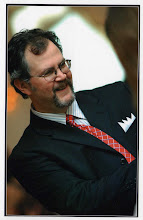Tuesday, April 25, 2006
Oh, you mean that "COPY" copy...
 The New York Times ran a story by Dinitia Smith today about Kaavya Viswanathan, a 19-year-old author of How Opal Mehta Got Kissed, Got Wild and Got a Life (Little Brown), who is "accused of plagiarizing parts of her recently published chick-lit novel...." The Harvard sophomore "acknowledged ... that she had borrowed language from another writer's books, but called the copying 'unintentional and unconscious'" (emphasis added).
The New York Times ran a story by Dinitia Smith today about Kaavya Viswanathan, a 19-year-old author of How Opal Mehta Got Kissed, Got Wild and Got a Life (Little Brown), who is "accused of plagiarizing parts of her recently published chick-lit novel...." The Harvard sophomore "acknowledged ... that she had borrowed language from another writer's books, but called the copying 'unintentional and unconscious'" (emphasis added).The plagiarized language came from two books by Megan McCafferty, author of popular young-adult books such as Sloppy First, Second Helpings, and Charmed Thirds. Viswanathan admitted reading the books when she was in high school. Evidently they made quitye an impression on her. She said she wasn't aware how much she "may have internalized" from McAfferty. ("May have?" Didn't know it was a moot point.)
In the meantime, Smith writes, "there are at least 29 passages [between McAfferty's books and Viswanathan's] that are strikingly similar." The Boston Globe lists a few examples of the questionable prose.
The Times' reporter quotes Viswanathan's agent as saying: "Knowing what a fine person Kaavya is, I believe any similarities were unintentional. Teenagers tend to adopt each other's language" (emphasis added). With all due respect, McCafferty is no longer a teenager; she's 33 according to her Web site.
So here's my question:
Adopting language patterns unqiue to each younger generation is one thing. Writing or typing someone else's words is something else. I'll grant that if something is done unconsciously, it probably follows that it's untintential. But how can someone "unintentionally" copy something? Miriam Webster's Collegiate Dictionary (Tenth Edition), defines "copy" as "an imitation, transcript, or reproduction of an original work." In other words, it takes a concious effort to copy something.
When I was a kid, we copied passages from the encyclopedia. Our teachers were always on us to express the ideas in our own words. Nowadays there's a lot of lip service paid to the sins of plagerism, but it seems at least some teachers allow their charges to cut and paste from Internet sources. While the Web may been a good source for working on research skills, it's also a breeding ground of dubious academic behavior.
